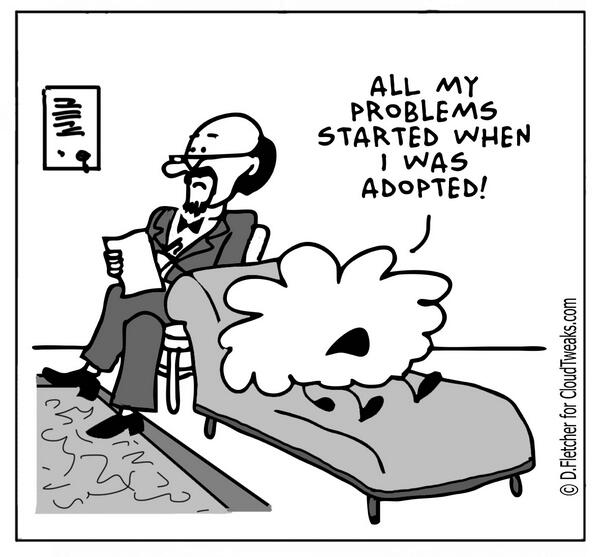 The phrase I hear most often from my clients whenever they talk about their business problems and pain points is “but we’re moving to a new CRM soon, so that won’t be a problem anymore.” That’s definitely the promise and the appeal of CRM, and it’s why organizations will spend over $20 billion on them this year, according to Gartner. That’s why clients are always taken aback when I advise caution.
The phrase I hear most often from my clients whenever they talk about their business problems and pain points is “but we’re moving to a new CRM soon, so that won’t be a problem anymore.” That’s definitely the promise and the appeal of CRM, and it’s why organizations will spend over $20 billion on them this year, according to Gartner. That’s why clients are always taken aback when I advise caution.
The study cited above is for large companies, but some of the cautionary findings should resonate across organizations of any size. CRM initiatives fail because there isn’t clarity over who owns the CRM data (is it Development? Communications? IT?), not enough management time or executive support for the initiative, and because there aren’t real consequences to employees for not adopting the new system.
What You Can Do To Succeed at CRM
- Strategy First, CRM Second
Before you implement a new CRM, you’ll need to ensure your organization’s strategy and learning loop are sound. CRM can’t tell you what information is important to track or which outcomes to prioritize. You’ll need to set time aside to make sure your business or nonprofit is clear on what it is trying to achieve and how it measures progress towards those goals. Implementing a new CRM is a great opportunity to frame that conversation! - Fewer Arrows, More Wood
Most organizations are seduced by the promise that CRM can do everything. But the reality is that success is about focus. Identify the most important problems you’d like to solve and don’t get distracted by the bells and whistles hanging off of most CRMs today. - Opportunity + Talent + Effort = Success
CRMs are the opportunity. Effort will come from your committed staff. But without talent, you won’t see success. Make sure you have the human resources you need to deploy and implement a CRM. Consultants can be an enormous help you implement, and they can also help you identify what skills and personnel you’ll need in-house to leverage and maintain your new CRM. If your product selection step doesn’t include a scan of your staff’s skills, you may end up with a system you can’t operate on your own when the consultants leave. - CRM Needs Consensus
More than any other system you’ll deploy, CRM impacts the work of nearly every department and employee, as well as board members and other stakeholders. You’ll need time and attention from executives and managers, and significant revisions to policies and workflows. Don’t forget, you’ll also need board support for IT investment, especially on the nonprofit side. Check out this earlier post for 3 Rules for IT Buying. - CRMs are the Mirror of the Organization Soul
CRMs are a reflection of your organization. If your organization has strong processes, a culture of learning and accountability, and courageous leadership, your CRM implementation will propel you to new heights. If your organization is well-meaning but scattered, techn0phobic, and leadership is too distracted to nurture the implementation, you’re unlikely to reap the rewards that CRM can offer.
For CRM The Rewards Are Real
High-growth organizations are for more likely to use CRM and the analytics it can generate than their low-growth counterparts. Maximize your sucess at CRM implementation, and you can set your organization on a path to explosive growth!


